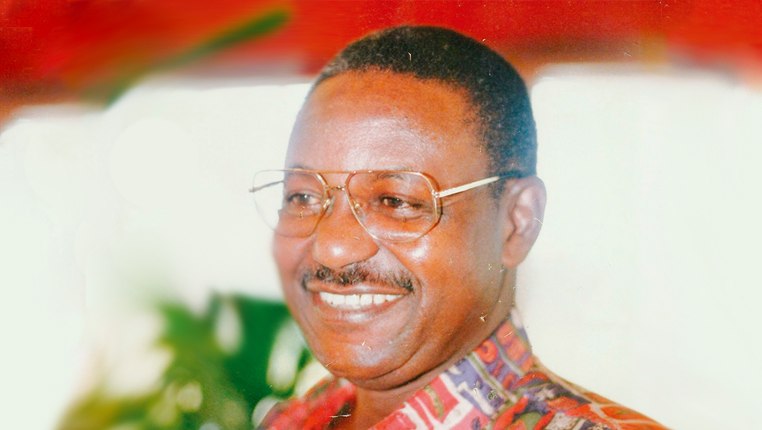Nation
For Obaro Ikime, Peter Enahoro; two lives defined by excellence

Adebayo Obajemu
Though they operated in different fields, but thematically they were joined together by the idea of chronicling the society at different levels with the finicky eyes of an eagle.
Obaro Ikime, who died last week was an historian of eminence, while Peter Enahoro, who passed on two weeks ago was a journalist of international standing.
While the former chronicled the past, the latter recorded the present and both pointed the way and defined how the contours of the future will be.
Ikime, one of the finest historians to have come from Africa, was one of the early answers to novelist Joyce Cary, eminent British historian Trevor Ropper, Comte Gobineau and the entire Western scholarship bias against Africa, with their moniker: Africa has no history.
Western scholarship has tended to belittle African contribution to human progress, and the cornerstone of this assertion is that the continent has no history, no technology and that it belonged to the primeval of time and lived subhuman life at the margin.
“This perspective also resonated in their literature as seen in many works of Shakespeare and in work of Joyce Cary, especially Mr. Johnson”, says Professor David Fiki, of the department of French Ahmadu Bello University, in his chat with Business Hallmark.
Fiki asserted that it was the false notion or perspective on Africa, a deliberate mischief to present Africans as having no history that fired the imagination of writers like Professor Chinua Achebe to write his “Things Fall Apart” as a response to Cary.
Ikime was one of the emergent African historians that reclaimed the true African historiography, by presenting the authentic histories of African societies.
According to Professor Dele Owotunibi, another historian, in his chat with Business Hallmark, “the focal point of these emergent historians was University of Ibadan, where they started the now world famous Ibadan School of History. Eminent pioneers aside Ikime, include: Professors Jacob Ade-Ajayi, Tekena Tamuno, Kenneth Dike, Eberechukwu Afigbo at University of Nigeria, Nsukka, Adeagbo Akinjogbin and Banji Akintoye in Ife, Adebowale Joseph Atanda, Anthony Asiwaju, Ebiere Alagoa, Tajudeen Gbadamosi, Abdullahi Smith and Bala Usman at Ahmadu Bello University and others.
Ikime’s concerns about the scholarly model of African history are valid, and it is refreshing to see that the Emeritus Professor not only identified this early in his career but also worked as a vanguard in charting a new path, he did his best in company of colleagues to produce an authentic history of Nigeria.
His magnum opus, “The Groundwork of Nigerian History” has continued to soar as a masterpiece of historical scholarship and research.
Obaro served as a president of the Historical Society of Nigeria. He also served as a priest at the Anglican Church in Nigeria
Obaro had his secondary school education between 1950- 1956 at Government College, Ughelli, Delta State, Nigeria. He proceeded to the University of Ibadan to study History with Second Class Honours (Upper Division). Obaro began serving in a leadership capacity as early as his secondary education, where he was appointed as the school prefect at Government College, Ughelli in Delta State.
His other works include, Leadership in the 19th Century Africa, 1974, The Fall of Nigeria,1977, Groundwork of Nigerian History, 1980.
While it’s fitting to say Ikime recorded the past , it’s conveniently safe to assert that Enahoro recorded the present as an eminent journalist.
Kingsley Martin, the former editor of the British New Statesman, once asserted that “the role of a journalist is akin to historian, while the historian looks at the past, the journalist chronicles the present.”

Peter Enahoro
Enahoro, who died two weeks ago at 88, is easily the most popular journalist the country has ever produced, and his monicker : ‘Peter Pan’, which was the name of his column in the New African magazine, is widely known and generally agreed to be one of the most successful, long running columns in African journalism.
Ene Rowland, a graduate student of journalism said that “Enahoro was one of the early pioneers of the pen profession in the country, who laid the groundwork, set the praxis and today the fusion of radicalism and patriotism that has defined the profession which owes much to the efforts of Enahoro and men like Babatunde Jose and others.”
Enahoro started his career in media as an Assistant Publicity Officer, Department now Federal Ministry of Information, 1954. He joined Daily Times as a sub-editor in 1955, at the age of 20, before moving on to serve as Assistant District Manager at Rediffusion Services, Ibadan, in 1957.
He became the Editor of the Nigerian Sunday Times in 1958 at the age of 23, and Features Editor of the Daily Times in 1958, then the newspaper’s Editor in 1962, going on to become the Daily Times Group Editorial Adviser in 1965, and in 1966 Editor-in-Chief of the Daily Times.
In the 1960s, Enahoro went into a self-imposed exile that would last for 13 years. He was Contributing Editor of Radio Deutsche Welle in Cologne, Germany, from 1966 to 1976, and was Africa Editor of National Zeitung, in Basel, Switzerland, becoming Editorial Director of New African magazine in London in 1978.
In 1981, he launched a pan-African news magazine called Africa Now.
He became Sole Administrator of Daily Times Nigeria Plc in 1996. His “Peter Pan” column that he began writing in 1959 steered feathers among the political big-wigs. Frank Barton in his book, The Press of Africa (Macmillan Press Ltd.) described Enahoro as “arguably Africa’s best journalist writing in the English language”.


